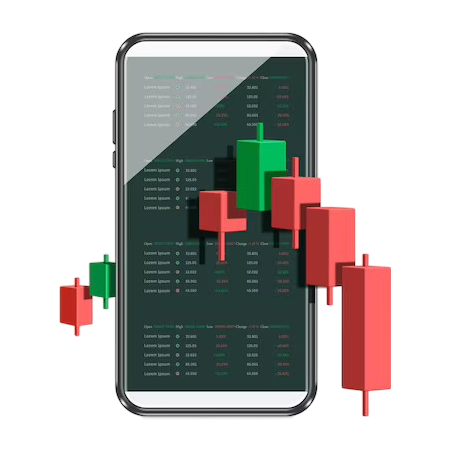The foreign exchange market (Forex or FX) is the largest and most liquid financial market in the world, with a daily trading volume exceeding $7.5 trillion. It operates 24 hours a day, five days a week, allowing traders from across the globe to buy, sell, and speculate on currency pairs. Unlike traditional stock markets, Forex trading is decentralized, meaning transactions take place over-the-counter (OTC) through a global network of banks, financial institutions, and individual traders.
In this comprehensive guide, we will explore the key aspects of global Forex trading, including market participants, trading strategies, risk management, and tips for success.
The Forex market consists of multiple trading sessions worldwide:
Sydney Session (Opens 10 PM UTC)
Tokyo Session (Opens 12 AM UTC)
London Session (Opens 7 AM UTC)
New York Session (Opens 12 PM UTC)

These overlapping sessions create continuous market activity, allowing traders to execute trades anytime.
Central Banks & Governments – Influence currency value through monetary policies and interest rate decisions.
Commercial Banks – Execute large-scale transactions and set exchange rates.
Institutional Investors – Hedge funds, mutual funds, and pension funds engage in large-volume trades.
Retail Traders – Individual investors participating via online Forex brokers.
Corporations – Engage in Forex trading for international business operations.
Forex trading revolves around currency pairs, classified into three categories:
EUR/USD – Euro vs. US Dollar
USD/JPY – US Dollar vs. Japanese Yen
GBP/USD – British Pound vs. US Dollar
USD/CHF – US Dollar vs. Swiss Franc
EUR/GBP – Euro vs. British Pound
AUD/JPY – Australian Dollar vs. Japanese Yen
GBP/JPY – British Pound vs. Japanese Yen
USD/TRY – US Dollar vs. Turkish Lira
EUR/ZAR – Euro vs. South African Rand
USD/MXN – US Dollar vs. Mexican Peso
Forex is the most liquid market, allowing traders to execute large trades with minimal price fluctuations.
Unlike stock markets, Forex operates around the clock, enabling flexible trading opportunities.
Most Forex brokers offer tight spreads and commission-free trading.
Traders can control larger positions with minimal capital, but leverage also increases risk.
Forex traders can take both long (buy) and short (sell) positions, capitalizing on price movements in either direction.
Involves executing multiple trades in a short time frame (seconds to minutes)
Requires high-speed execution and low spreads
Traders open and close positions within the same trading day
Eliminates overnight market risks
Positions are held for several days to weeks
Aimed at capturing medium-term price trends
Traders follow the dominant market trend (uptrend or downtrend)
Uses indicators like Moving Averages and Relative Strength Index (RSI)
Trades are executed based on economic releases and geopolitical events
Examples: Non-Farm Payrolls (NFP), GDP reports, and Central Bank Announcements
Risk management is crucial to long-term success. Here are key principles:
Stop-loss protects capital from excessive losses
Take-profit locks in gains at pre-determined price levels
Never risk more than 1-2% of your trading capital on a single trade
Higher leverage amplifies both profits and losses; use it wisely
Emotional trading leads to poor decisions; always follow a strategy
Trade different currency pairs to spread risk
Selecting a trustworthy Forex broker is essential. Consider these factors:
Choose brokers regulated by authorities like FCA (UK), ASIC (Australia), CySEC (Cyprus), or CFTC (USA)
Look for brokers with competitive spreads and low commissions
Popular platforms include TM9 (TM9), TM9 (TM9), and cTrader
24/5 customer support via live chat, email, or phone is crucial
Ensure the broker offers fast and secure payment methods
Develop a Trading Plan – Set clear entry, exit, and risk management rules.
Stay Updated with Market News – Follow economic events, central bank policies, and geopolitical developments.
Backtest Your Strategies – Test strategies using historical data before live trading.
Keep a Trading Journal – Analyze past trades to identify strengths and weaknesses.
Practice with a Demo Account – Gain experience without risking real money.
Be Patient and Disciplined – Success in Forex trading requires long-term commitment.
Global Forex trading offers immense opportunities for traders worldwide. With its high liquidity, 24/5 accessibility, and leverage options, it remains a preferred choice for both beginners and experienced traders. However, success in Forex trading requires a well-defined strategy, risk management, and continuous learning.
By understanding the market structure, choosing the right trading approach, and practicing disciplined risk management, traders can enhance their profitability and navigate the dynamic world of Forex trading effectively.
Are you ready to start trading Forex? Choose a trusted broker, develop a solid strategy, and trade with confidence!
